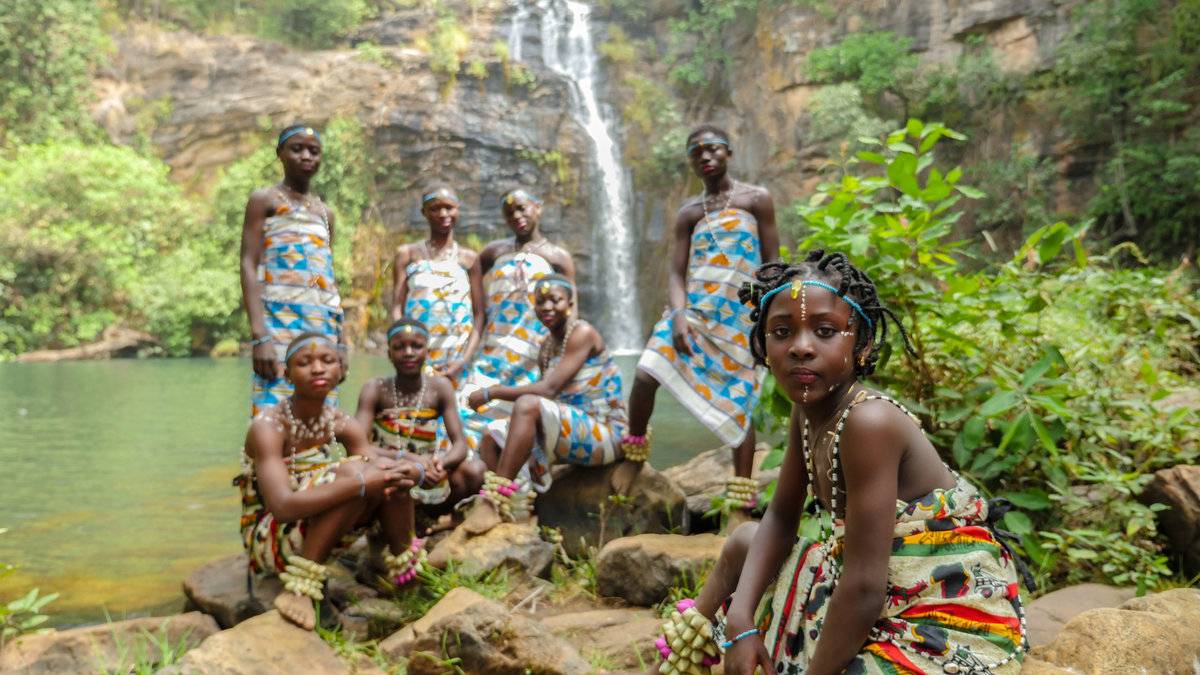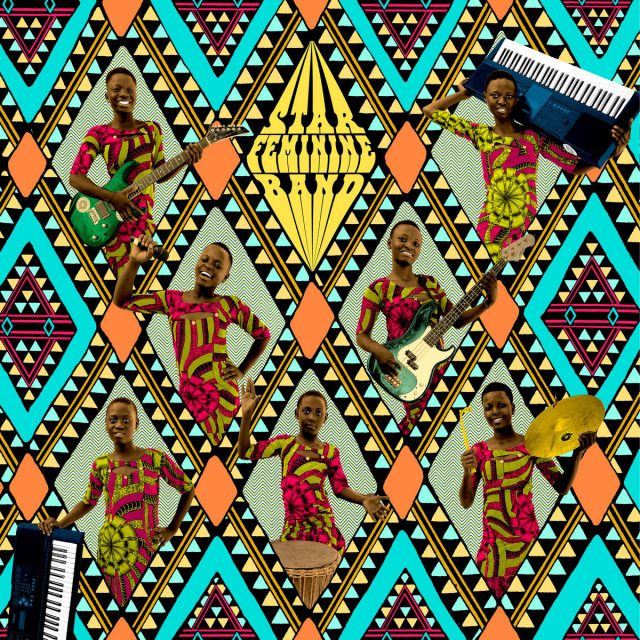THE EDITED PRESS RELEASE: “Without warning, Star Feminine Band, a group of young girls from a remote region of Benin is shaking up the world of garage rock with breathtaking freshness, ingenuity and energy, playing spot-on, loud and clear.
Culturally and musically, North-West Benin is more influenced by sato, voodoo and modernized folklore developed by groups like the Black Santiagos orchestra which gave birth to Afrobeat in the mid-1960s, before being adopted and developed by Fela Kuti. It is in this region full of contrast, of both green and rocky landscapes, that the seven young stars of the Star Feminine Band grew up. Often taken out of school and sent to sell peanuts or bananas on the side of the road, most young girls in the region have little future to look forward to. Forced marriages and early pregnancies in the majority of cases.
Aware of this insecurity, a musician named André Baleguemon decided to form an exclusively female band rooted in the concerns of its time. His observation is simple: “In the North, girls have no room to advance and women are put aside. I simply wanted to show the importance of women in the societies of North Benin by forming a female orchestra.” So in 2016, he offered to help train girls in music for free. A few days later, dozens of aspiring musicians showed up at the Youth Center. “The girls who came didn’t know anything about music. We selected seven girls of the Waama and Nabo ethnic groups from the surrounding villages, some had never even seen these types of instruments before. “
With drums, two guitars, keyboards and some added percussion purchased by André, the first musical tests began with his new recruits, a handful of young girls among the most motivated. The girls quickly became passionate about their new musical activities, learning how to play drums, guitar, piano and sing vocal harmonies. Their progress was astounding. An intense work of musical training took place, starting with drum workshops, their favorite instrument. Angelique and Urrice on drums and vocals, assisted by Marguerite, the third drummer. Sandrine is on keyboards, as is Grace, who also sings vocals. Julienne is on bass and Anne on guitar.

Now aged 9 to 15, the seven girls of the Star Feminine Band continue to go to school and rehearse three times a week. Baleguemon and his talented protégés adapt songs of traditional inspiration, in a vein of modernized folklore. “We play waama rhythm dances, we want to honor them. We compose songs in French, waama and ditamari, two unknown ethnic groups from the North. We also sing songs in the Bariba language, as well as the Fon language, the main language in Benin, in the new repertoire, in order to be understood by as many people as possible.”
Peba is sung in waama. It’s about girls going to school in order to be themselves. Sung in French, the lyrics of La Musique and Femme Africaine speak for themselves. Timtilu is sung in ditamari. In this song, the girls give the advice to not abandon your culture, but rather to honor it. A song of emancipation in the peul language, Rew Be Me Light, is an ode to women, an encouragement to succeed in your own career and succeed as a woman.
A unifying song, Iseo is sung in bariba. “Men and women, let us rise, from the south, from the center, from the north, let us unite and be one so that the country can evolve.” This song is about bringing together the regions and the diversity of cultures in Benin. Sung in bariba, Idesouse indicates that girls must go to school until the end of their studies in order to defend the values of women. They have to fight all the more in order to gain this recognition.
True heroines of everyday life, the seven girls of the Star Feminine Band embody the future and the next generation in search of recognition. “In the 1960s, God was a black girl who sang” used to say New York composer duo Carole King and Gerry Goffin. Sixty years later, in one of the forgotten provinces of the African continent, this adage takes on its full value.”








































